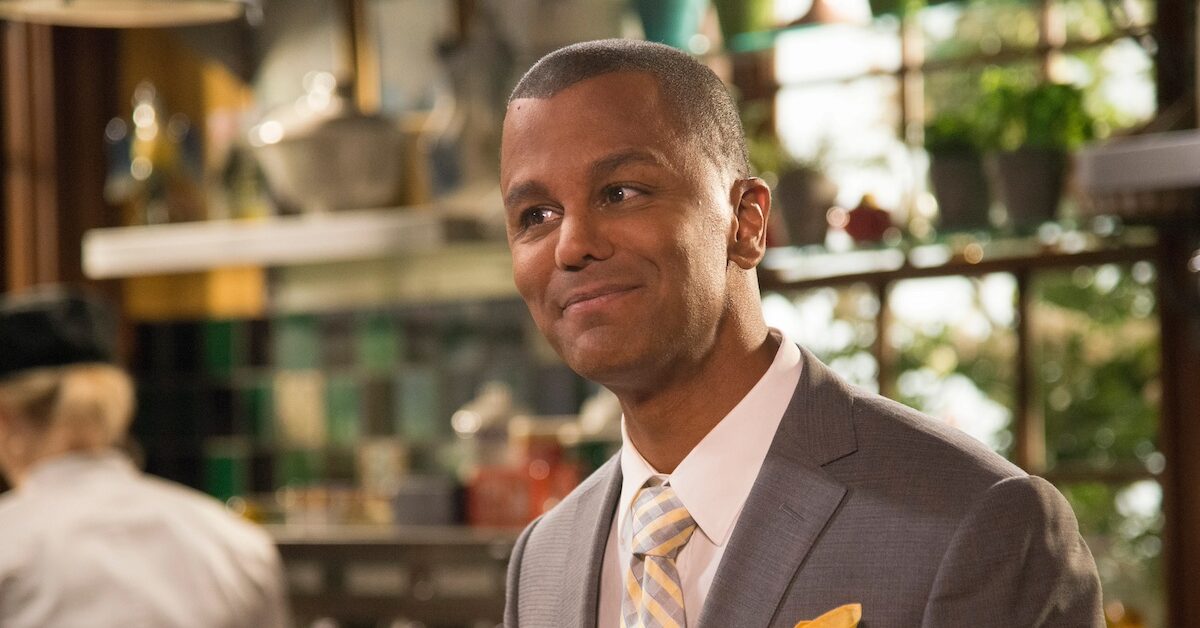I’ve always been baffled by the “French accent” used by Americans in film and TV. I was thinking about this over the weekend, as I struggled to get through a few episodes of the Apple TV mini series, The New Look. Loosely inspired by the wartime escapades of Coco Chanel and Christian Dior, the show is a grim drama set in Nazi-Occupied Paris. Though qualms have already been raised about the show’s pacing, casting, and generous framing of Chanel’s infamous Nazi affiliations, the bone I’ll choose to pick is its use of accents.
No one in The New Look sounds as if they are from the same place. With a cast populated by Brits, Australians, Danes, and Americans, bad French and German accents abound. Ironically, Juliette Binoche, one of the few French actors in the main cast, uses her own accent, which contains the unplaceable nuances of a French person who has learned English over a long period of time. She doesn’t sound quite American or British, and she definitely doesn’t have the stereotypical French accent used by her non-French castmates.
In general, I think it’s silly when American or British shows have English-speaking actors using French accents to imply that they would be speaking in French. After all, it doesn’t make any sense! Either have them speak in French, or let them use their original accents. Because in real life, they simply wouldn’t be speaking accented English in a period drama set in France. (Caitlin made the same complaint about another recent World War II period drama, All the Light We Cannot See.)
And the accents used in these shows and films don’t mimic how French people speak in English, anyway. The dead giveaway, in my opinion, is when non-French people attempt to mimic the French “R.” French is a non-rhotic language, which means it doesn’t use the hard “R” sound we use in American English. (Rhotic=hard “R,” non-rhotic=no hard “R.” You can hear examples of both in this video.) Many Americans, while doing a “French” accent, will use the same pronunciation a French person would use while speaking French. For example, they would use the same guttural, back-of-the-throat “R” you would use in Français or Bonjour or Rouge, but in a sentence like, “I am very French.”
But if you were to hear a French person speaking in English, they would generally be attempting to mimic an American accent. I find that this often manifests in exaggerated hard “R” sounds, like the French are focusing all of their energy on making sure that “R” comes out.
A great example of this can be found in the trailer for French Girl, a new romcom I’ll be reviewing later this week. Just listen to how the Québécois actor Évelyne Brochu says the word “interview” with a hard “R,” not a guttural French “R.”
Meanwhile, one of the more famous examples of bad stereotypical French accents in media comes from another French Canadian actor, Yanic Truesdale. I’d always assumed that Truesdale, who plays the snarky Frenchman Michel in Gilmore Girls, was American, because of the exaggerated French accent he uses in the show. But as it turns out, Truesdale is from Montreal, and French is his first language—though the accent he uses in the show is not his own. (You can hear both his real and fake accents in this video.) I guess sometimes it’s just not enough to have an actual native French speaker—if they don’t have the silly accent, we just don’t buy it.
Croissant of the week…
The viral rainbow cookie croissant at Settepani in NYC. Did we need to fill a croissant with Italian rainbow cookies? Probably not. But you know I have a sweet spot for all weird croissants.
New Orleans and rats…
Last week, Caitlin wrote about rats. This week, she’s writing about New Orleans, starting with a book review of the new novel Pelican Girls, which is set in 18th century NOLA. Keep an eye on our homepage for more New Orleans content.
Ciao,
Catherine Rickman
Managing Editor, frenchly.us
Stay in touch! I’d love to hear from you: [email protected].






